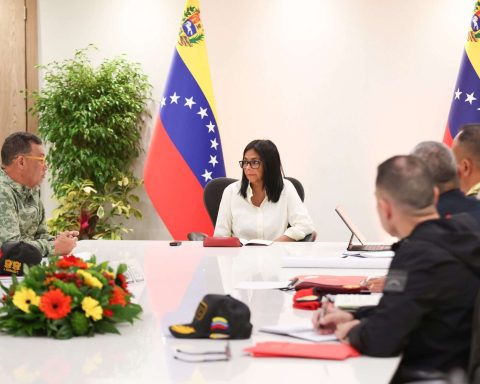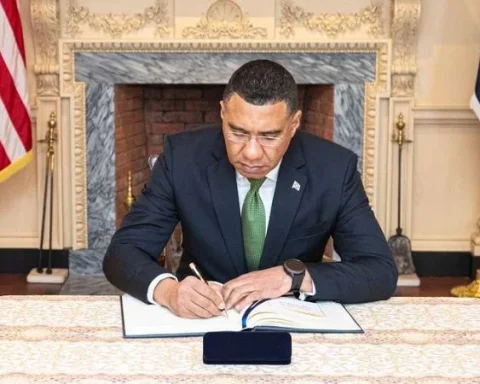The triumph of Rejection in the exit plebiscite last Sunday, September 4, drew a new political scenario, where the Government of President Gabriel Boric had to quickly deliver a signal and restructure his cabinet, balancing forces in favor of Democratic Socialism. In this context, the political center re-emerges as an empowered space, with leaders that could play a key role in the new constitutional discussion, such as the senators of the Christian Democracy (DC) Ximena Rincón and Matías Walker.
But beyond the DC – a party that these days deepens its internal crisis, after the departure of its president, Felipe Delpin –, among those who belong to these sectors of the center, with obvious connections with the former Concertación or the former New Majority, and who opted for the Rejection in the exit plebiscite, there is a growing will to call for the formation of a new political space, which actively participates in the new constituent process and which is committed to consolidating a project of gradual and moderate transformations, which – in his opinion – seek to attract an important part of the population, particularly that which voted Approve in the entry plebiscite and leaned towards Rejection in last Sunday’s referendum.
One of the actors calling for the formation of this new political space is the former senator and former conventionalist Felipe Harboe (with a militant past in the PPD), who explains that “the main effect of the exit plebiscite, from the Chilean political system, is that it allowed Being on the same sidewalk with people who have historically thought differently, based on a common goal, but it also allowed us to discover the possibility that, just like the PS, the PPD and the PL, they crossed the path and left the center-left world to go of fellow travelers from the Broad Front and neo-communism, my perception is that the possibility arises of having a different political space that breaks the cleavage that comes from Yes and No”.
Given this intention, Harboe details that there have only been conversations and intentions have slipped, but no formal negotiations have been finalized to give rise to the formation of a party. In this sense, he clarifies that it is not the intention to try to reissue the Concertación, because, although he thinks that it was a successful coalition at a specific political moment in the country, any new party or moment must –in his opinion– necessarily express the new society we have today.
However, another of the voices involved in this nascent sector, the former Minister of Education in the government of former President Ricardo Lagos, Mariana Aylwin – who played an active role in the Rejection campaign as part of the Amarillos por Chile movement – warns that previously there have been wills, which have finally failed. “I don’t see it as easy, because I feel that until now it has never worked out, because there have been many egos, many generals who have wanted to be the chiefs of troops, and a certain generosity has been lacking to be able to do it, because I don’t think something can be built where everyone thinks exactly the same,” warns Aylwin.
In this regard, the ex-member of the DC argues that the formation of a space of this nature must be approached from a more global and less identity project. Mariana Aylwin believes that a vision of a shared future should be adopted that differs from the most extreme positions and also responds to the need for representation of a sector of the center, which – according to her opinion – manifested itself in two elections: in 1980 % of the entry plebiscite and 62% of the recent exit plebiscite. “Not all of them were from the left there, nor are they all from the right here. There, people from a progressive center world voted that want changes, and here a center world voted that wants these changes to be realistic, and that they be transformations for sure and not respond to an imaginary country,” he adds.
The political limits of the nascent center space
But the truth is that the idea of forming a new party that brings together leaders from the political center is not something that is simply the result of the empowerment of this sector after the triumph of Rejection. Last July, the deputy Miguel Ángel Calisto (DC) –in the midst of the crisis that deepened in the phalanx after the National Board decided to support the Approval– slipped the idea of calling for the creation of a new referent, but he He was openly in favor of adding right-wing sectors, such as RN, Evópoli, and the Partido de la Gente, to said discussion. The question that arises now is, precisely, about the political limits of this emerging party and if, just as they risked betting on the Rejection, they would now be willing to take the risks of adding actors linked to the traditional right.
Given this discussion, Harboe maintains that the priority intention is to summon the world of the progressive center-left, which, he points out, “is a world that is here and not on the other side of the sidewalk.” However, he warns that “if later, later, someone from another sector wants to join, they are welcome, but today we have to think about how to channel that world that does not vote for the right, that voted for Bachelet or Lagos, but that he does not feel represented by what is happening today.”
Mariana Aylwin is the one who does not close the doors to eventual bridges to “centre-right” sectors, who believes that this discussion requires conversations between sectors of the center-left world, where she thinks that people from the right who do not have a party, such as For example, the sector that supported Sebastián Sichel in his failed presidential candidacy and of which the former minister was a part.
In this sense, the former conventionalist Fuad Chahin (DC) points out that this new space must necessarily be defined as center, but warns that “just as there are people from the center-left who want to participate with us, certainly if there is someone disenchanted with the role of the right that wants to join, welcome. Here, the important thing is that this new space has a clear definition: that it be a center of change, where the first thing is to define the programmatic limits in this regard, and those who feel identified with that proposal can add, without vetoes a priori”.
In this way, in the midst of the discussion of the continuity of the constituent process that these days is beginning in the National Congress, who defined themselves as “the center-left in favor of Rejection”, with faces like Chahin, Carlos Maldonado (with their militancy in the PR suspended) and senators Ximena Rincón and Matías Walker (DC), evidently seek to capitalize on their triumph in the exit plebiscite, assuming the diagnosis that the citizenry prefers gradual changes, over a refoundational logic that –in its opinion – filled the failed constitutional proposal that failed in the recent referendum. This is why the idea of creating a new space that brings together these wills gains strength, even thinking of strengthening leadership, with a view to an eventual presidential race in the short term.


















